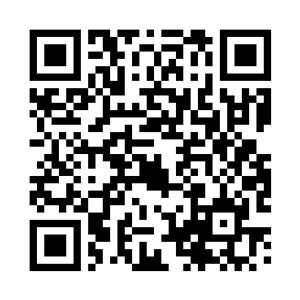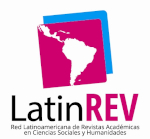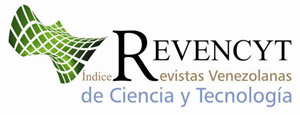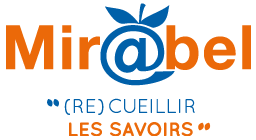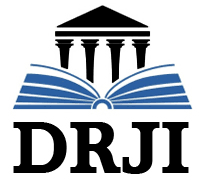An existentialist approach to the ontology of language in contemporary managerial and organizational practice
Keywords:
existentialism, language ontology, linguistic human being, ontological coaching, learning organizationsAbstract
This essay proposes an existentialist approach to the ontology of language, applied to contemporary management and organizational practices. It initially introduces how existentialism influences the understanding of human beings within organizations. Subsequently, it conceptually examines the ontology of language, highlighting language's generative role in constructing reality and identity, and in shaping experience and meaning in individual and organizational interactions. This generative role influences relationships and tasks. The paper argues that understanding human beings as linguistic beings and language as transformative action is fundamental for comprehending and improving organizational dynamics. This study addresses knowledge and learning-oriented organizations and analyzes how ontological coaching emerges as a practical tool for fostering and developing individual and collective leadership and transformation. Finally, this text, with an interdisciplinary focus and a primacy in the managerial area, seeks to enrich the theoretical understanding of human beings, their actions, and their influence in contemporary organizations. It contributes to a humanistic vision that enables leaders and managers to confront current challenges from a comprehensive understanding of being within the organization.
Downloads
References
Beauvoir, S. de. (1949/2005). El segundo sexo (A. Martorell, Trad.; 6.ª ed.). Ediciones Cátedra. https://cursoshistoriavdemexico.wordpress.com/wp-content/uploads/2018/09/beauvoir-simone-de-el-segundo-sexo.pdf
Chavez, N., & Torres, G. (2012). La organización inteligente en un ambiente de aprendizaje: Una exploración de sus aspectos generales. Universidad EAFIT, 101–115. https://www.redalyc.org/pdf/3223/322327351007.pdf
Dessler, G., & Varela Juárez, R. (2011). Administración de recursos humanos: Enfoque latinoamericano (5.ª ed.). Pearson Educación. https://gc.scalahed.com/recursos/files/r161r/w24802w/Administraci_%B3n-de-recursos-humanos-5ed-Gary-Dessler-y-Ricardo-Varela.pdf
Echeverría, R. (2003). Coaching: Una competencia a desarrollar en las organizaciones. Consultora: Newfield Consulting
Echeverría, R. (2006). Ontología del lenguaje. Lom Ediciones S.A.
Echeverría, R. (2013a). La empresa emergente, la confianza y los desafíos de la transformación. Ediciones Granica.
Echeverría, R. [Miguel Retamal]. (2013b, 2 de diciembre). ¿Qué es el ser humano? Una mirada desde la ontología del lenguaje [Video]. YouTube. https://www.youtube.com/watch?v=IPaFWFvwDIw
González Gallego, A. (2000). La existencia como problema. Thémata: Revista de Filosofía, (24), 255–259. Universidad de Barcelona. https://dialnet.unirioja.es/servlet/articulo?codigo=631240
González, E. (2006). Existencialismo y humanismo ante la crisis de la psicoterapia: Una revisión. Fundamentos en Humanidades, 7(13), 183–192. http://www.redalyc.org/pdf/184/18400710.pdf
Heidegger, M. (1946/2000). Carta sobre el humanismo (H. Cortés & A. Leyte, Trads.). Alianza Editorial. (Original publicado en 1946). https://www.ucm.es/data/cont/docs/241-2015-06-16-Carta%20sobre%20el%20humanismo.pdf
Lagarde, M. (2012). Una aproximación lingüística a las organizaciones desde la ontología del lenguaje. Facultad de Ciencias Económicas, Universidad de Buenos Aires. https://dialnet.unirioja.es/servlet/articulo?codigo=6392077
Leserre, D. (2011). Significado y posibilidad: la comprensión ontológica del lenguaje en Ser y tiempo como filosofía del hablar. Revista de Humanidades, (24), 25–51. https://www.redalyc.org/pdf/3212/321227219002.pdf
Martínez, A. (2008). Heidegger y la cuestión del humanismo. https://www.academia.edu/6699006/Heidegger_Heidegger_y_la_cuesti%C3%B3n_del_humanismo
Morón-Arroyo, C. (2016). Existencialismo. En M. A. Garrido Gallardo (Dir.), Diccionario español de términos literarios internacionales (DETLI). Consejo Superior de Investigaciones Científicas. http://www.proyectos.cchs.csic.es/detli/sites/default/files/Existencialismo.pdf
Navarro Delgado, R. (1998). La ontología del lenguaje, de Rafael Echeverría. Frónesis, 5(2). 137-142. https://produccioncientificaluz.org/index.php/fronesis/article/view/16407
Richardson, P. (2005). Coaching personal: Guía práctica para descubrir y desarrollar sus propias capacidades. Ediciones Parramón.
Samour, H. (2023). ¿Qué es el existencialismo?. Revista De Museología "Kóot", 1(13), 20–37. https://doi.org/10.5377/koot.v1i13.14798
Sartre, J. P. (1943). El ser y la nada: Ensayo de ontología fenomenológica. https://elartedepreguntar.files.wordpress.com/2009/06/sartre-jean-paul-el-ser-y-la-nada.pdf
Sartre, J. P. (1973). El existencialismo es un humanismo (V. Prati de Fernández, Trad.). Editorial Sur. (Obra original publicada en 1946). https://www.ucm.es/data/cont/docs/241-2015-06-16-Sartre%20%20El_existencialismo_es_un_humanismo.pdf
Senge, P. (2010). La quinta disciplina: El arte y la práctica de la organización abierta al aprendizaje (2ª ed.). Ediciones Granica. https://www.institutocastaneda.com.ar/ingreso/archivo_ispi4031_ingreso_La-quinta-disciplina-Peter-Sange.pdf
Steinlen Cuevas C. (2016). Aproximaciones al problema del lenguaje y las relaciones intersubjetivas en Sartre. Revista de Humanidades de Valparaíso, 4(7), 87–98. https://revistas.uv.cl/index.php/RHV/article/view/44/980
Published
How to Cite
Issue
Section
License
Copyright (c) 2025 Arminda Corina Guerrero Peñalver

This work is licensed under a Creative Commons Attribution-NonCommercial-ShareAlike 4.0 International License.





